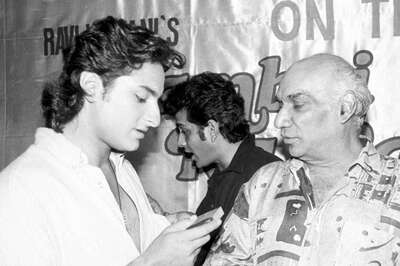
views
Binge drinking by teenagers in their senior year of high school can lead to dangerous behaviours later in life, including driving while impaired (DWI) and riding with an impaired driver (RWI), a new study suggests.
The study, published in the journal Pediatrics, found that the protective effect of parental monitoring and teen awareness of parents' attitudes about alcohol lasted as much as four years after leaving high school.
"There is great prevention power in intentional parenting and a strong, reliable, mutual relationship here can make all the difference in the world, including helping to identify the development of youth alcohol/drug use disorder and the need for specialised treatment services for addiction," said study lead author Federico Vaca from Yale University in the US.
Motor vehicle crashes are the leading cause of death for teens and young adults and nearly a quarter of these are alcohol-related crashes.
For the findings, researchers analysed data from the NEXT Generation Health Study, a national longitudinal study of high schoolers run by the US National Institutes of Health (NIH) and others that followed 2,785 young people over the course of seven years.
They found that the protective effect of parental monitoring and teen awareness of parents' attitudes about alcohol lasted as much as four years after leaving high school.
According to the study, by 12th grade, 42 per cent of young people have had an alcoholic drink in the past month, and 25 per cent have had at least one binge-drinking episode.
Generally, for women, binge drinking involves consuming four or more alcoholic drinks in two hours; for men, it's five or more drinks.
Extreme bingeing, a growing concern, refers to drinking up to 15 or more alcoholic drinks on a single occasion.
The researchers found that young people who binge in 12th grade were, two years later, six times more likely to drive while impaired than someone who did not binge drink, and, four years later, more than twice as likely to drive while intoxicated.
These teens were also more likely to ride with an impaired driver and to experience alcohol-related blackouts and extreme binge drinking in subsequent years.
But the study showed parents can have a positive influence.
According to the findings, if teens in 12th grade knew that parents disapproved of drinking, it decreased the odds of their driving while impaired by 30 per cent four years later, and of riding with an impaired driver by 20 per cent one year later.
Parental support for not using alcohol also reduced later odds of blackout by 20 per cent, the study said.
Follow @News18Lifestyle for more




















Comments
0 comment